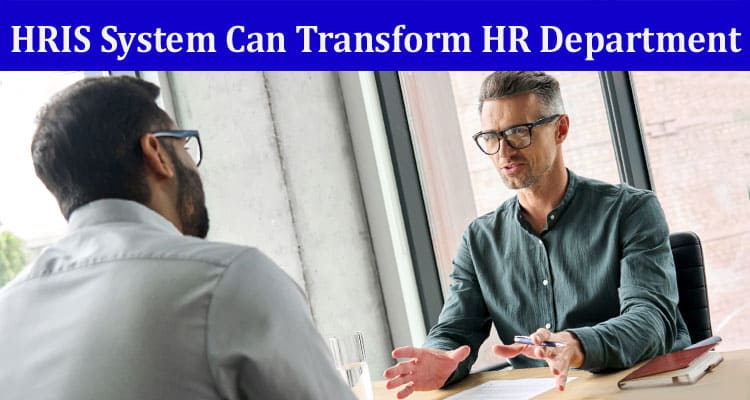An HRIS system is an intelligent database that stores employee records and documents in one central location. It expedites tasks, helps ensure accuracy, and makes it easier to find information.
Assessing what your organization needs is vital to get the most out of an HRIS solution. This assessment should consider bandwidth, technical infrastructure, and financial constraints.
Payroll
When choosing a full-suite HRIS, look for one that can be used for all your HR department’s operational, tactical, and strategic functions. Ideally, this will be a one-stop shop with the payroll system and employee performance management tools. This will save time and money because all the data you need will be readily available in a single application.
An innovative HRIS system also helps reduce the amount of work your team does by automating processes and storing information in a secure location. It can also help you stay compliant by keeping and tracking regulatory statutes (like equal employment opportunity data or working time opt-out) and ensuring that the rules around how data can be accessed match compliance laws.
Modern HRIS systems increasingly allow employees to manage their data using a self-service portal. Employees can access the HRIS to find out their pay, apply for leave, and update personal details, which helps eliminate costly errors caused by manual entries into paper files.
A smart HRIS will also incorporate a workforce management tool that promotes efficient scheduling. This will help you avoid costly project delays and ensure your teams are well-equipped to handle their assigned workloads. The same system should be used to track employees’ time in and out of the office, ensuring that accurate attendance records are kept. Managers can easily see if their teams are spending too much or not enough time on projects, and they can make necessary adjustments.
Time and Attendance
When managing employees, time and attendance are a critical component. An HRIS system such as UKG API can help streamline this process by automating workflows, eliminating the need for manual data entry, and providing more visibility into employee schedules and leave requests. This can help HR reduce administrative work, improve accuracy, and provide better employee service.
A centralized data repository also helps keep sensitive information secure, avoiding potential breaches or loss of records. HRIS systems often have built-in compliance management features to help ensure all processes align with global employment and labor laws.
A full suite of HRIS tools can also help businesses manage training, talent development, and succession planning. This can include creating a pipeline for future leaders, identifying skills gaps and competencies, and measuring performance. This is especially important as the workforce becomes increasingly more diverse and remote. With a central place to store and access data, it is easier for managers to make informed decisions about hiring, career progression, and succession plans. An integrated HRIS can also simplify and automate many of these processes, reducing the burden on HR teams. The key is to choose the right tool for your business needs. Be sure to consider scalability, as well as cost and functionality. Then, implement and train your team to get the most out of your new HRIS solution.
Employee Self-Service
With employee self-service, employees and managers can access and update their information. This reduces HR admin workload and enables employees to request time off or other benefits quickly and easily. In addition, a full-suite HRIS system allows employees to see the impact of their performance on company goals and objectives.
A comprehensive HRIS system also makes it easy to track compliance data, such as Equal Employment Opportunity or Global Labor and Employment regulations. Having this information stored in a central location also helps to improve efficiency by reducing the need for emails or paper files.
Another essential feature of a full-suite HRIS system is its ability to support workforce planning. This helps organizations identify their talent pools, understand the trends and patterns in their business, and plan for future needs. In addition, a robust HRIS system can facilitate the development of new training programs and provide coaching for employees to increase productivity.
When selecting a full-suite HRIS solution, finding one that includes all the features your organization requires in a single platform is best. This will make it easier for your technical staff to train on the software and help you find cost savings by bundling with a single provider. A good HRIS service will also be able to customize and adjust features based on your unique requirements.
Performance Management
A full-suite HRIS system makes employee data more accessible to manage, which can help reduce the time spent on clerical work. It also helps ensure the accuracy of information and eliminates the need to store large paper files that can be damaged or lost.
As HRIS software evolves, some vendors offer comprehensive performance management features that can transform employee ratings and reviews. The ability to track individual goals, measure progress, and communicate employee feedback can make for a much more collaborative workplace.
Ultimately, the best HRIS systems are designed to be a one-stop shop for an organization’s HR needs. When evaluating potential providers, one must consider how many services each vendor offers.
The best systems will offer a robust payroll system, compliance monitoring and reporting capabilities, employee self-service portals, and an integrated talent management solution that can automate many of the most common processes for small and large businesses.
Effective performance management will become more critical as the world moves away from industrial-style factory work. A quality HRIS can help improve productivity and increase employee retention by providing a more streamlined, transparent, and collaborative work environment. By integrating these features into one centralized solution, organizations can improve their bottom line and take a modern approach to managing their workforces.


